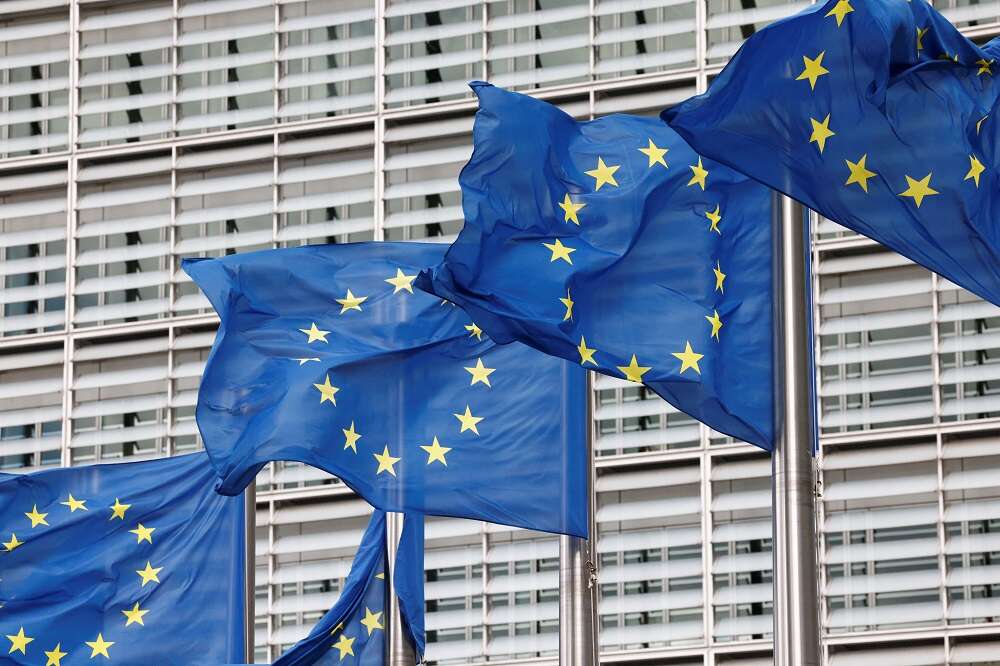
By Kate Abnett, Gabriela Baczynska and Philip Blenkinsop
BRUSSELS (Reuters) – European Union countries disagreed on Friday about whether and how to cap runaway gas prices, with Germany among those opposing the measure that 15 other states said was needed to tackle Europe’s energy crunch.
Meeting in Brussels on Friday, ministers from the 27 EU member states approved levies on energy firms’ windfall profits to try contain an energy price surge aggravated by Russia’s war against Ukraine.
The agreement covers a levy on fossil fuel companies’ surplus profits made this year or next, another levy on excess revenues low-cost power producers make from soaring electricity costs, and a mandatory 5% cut in electricity use during peak price periods.
The Czech Republic said, however, that was not enough and that many EU countries expected a proposal from the bloc’s executive European Commission on capping the gas price.
Speaking after the meeting, the EU’s energy commissioner Kadri Simson said there was no agreement on what such a cap would look like.
“We will… try to negotiate a price corridor, not a fixed cap, that allows us to bring down the costs for our consumers,” she told a news conference.
“A wholesale gas price is a legitimate option, but it requires a radical intervention in the market,” she said, adding that several “non-negotiable conditions” would need to be put in place alongside such a cap for it to work.
Italy’s energy minister said a group of countries will discuss among themselves next week ideas for a cap or “smart indexing” to help the Commission draft a legal proposal that all countries can support.
“The priority right now is to slash the price of gas. But there is a second priority: to avoid that this kind of action leads to a shortage of gas,” Roberto Cingolani said.
Fifteen countries, including France, Italy and Poland, this week asked Brussels to propose a price cap on all wholesale gas transactions to contain inflation.
The cap should be set at a level that is “high and flexible enough to allow Europe to attract the required resources”, they said.
‘STOP THIS INFIGHTING’
The commission warned countries this week that a broad cap would require “significant financial resources” to finance emergency gas purchases should market prices break the EU’s cap.
Denmark, Austria and the Netherlands sided with Germany in opposing the idea, which they said could leave countries struggling to buy gas if they cannot compete with buyers in price-competitive global markets.
Brussels suggested the EU could move ahead with a narrower price cap, for example by just capping Russian gas supplies, but countries including Belgium and Hungary were against. Another idea, akin to what Spain was already doing at home, was to target specifically gas used for power generation.
By introducing EU-wide measures Brussels hopes to overlay governments’ uneven national approaches to the energy crunch, which have seen richer EU countries far outspend poorer ones in handing out cash to ailing companies and consumers struggling with bills.
Germany, Europe’s biggest economy, set out a 200 billion euro package on Thursday to tackle soaring energy costs, including a gas price brake.
Claude Turmes, energy minister of Luxembourg, urged a stop to the “insane” spending race between countries to shield their economies from the energy price spike.
“That’s the next frontier, to get more solidarity and to stop this infighting,” Turmes said.($1 = 1.0182 euros)
(Reporting by Kate Abnett and Gabriela Baczynska, Philip Blenkinsop, Bart Meijer, Marine Strauss, Alvise Armellini and John Chalmers)


